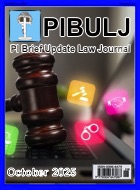The Price of Change: Niprose Investments Limited and 30 Other Claimants v Vincents Solicitors Limited [2025] EWHC 2084 (Ch) - Georgina Presdee, Temple Garden Chambers

29/09/25. On 6 August 2025, His Honour Judge Hodge KC handed down his judgment in Niprose Investments Limited and 30 Other Claimants v Vincents Solicitors Limited [2025] EWHC 2084 (Ch).
Issues
The central issue before the High Court was who should bear the costs arising from two linked applications:
- The Defendant's unsuccessful application to strike out the claim or obtain summary judgment, which failed because the Claimants were allowed to amend their pleadings.
- The Claimants' opposed but ultimately successful application to amend their Particulars of Claim.
Together the applications generated two full days of hearings and substantial costs.
Background
The Claim
The proceedings concerned a professional negligence claim brought by purchasers against their former conveyancing solicitors, Vincents. The claimants had invested in a failed residential development scheme and consequently lost substantial up-front payments.
The Applications
In March 2024, Vincents applied for strike out/summary judgment. Judgment was reserved until April 2024, when the Court directed the Claimants to serve draft amended Particulars of Claim, with the Defendant to indicate its position on those amendments. Costs were reserved.
By the time the matter returned to Court in December 2024, limitation had expired. Vincents opposed the amendments first on the basis that they introduced new, time-barred claims and second as a matter of discretion. Judgment was handed down in January 2025. The majority (but not all) of the amendments were permitted, with the Court finding no jurisdictional bar based on limitation grounds.
At the subsequent CCMH in July 2025, Vincents argued it should recover most of its costs of both its own application and the Claimants' amendment application, amounting to nearly £35,000. The Claimants sought their own costs of the applications (almost £100,000) while accepting they should bear the costs associated with the amendments themselves.
Ruling
HHJ Hodge KC held that the amendments had amounted to a "comprehensive reformulation" of the case. Following Bellhouse v Zurich Insurance Plc [2025] EWHC 1551 (Comm), he ruled that where a claim is only allowed to proceed because of wholesale amendment, the starting point is that the respondent should pay the applicant's costs of the strike-out/summary judgment application. Accordingly, the Claimants were ordered to pay 71% of Vincents' costs up to 22 July 2024. The 29% reduction represented the value of the Claims which had settled by that point. However, the Court awarded the Claimants 90% of their costs thereafter, reflecting both their substantial success at the second hearing and Vincents' failure to engage constructively with the proposed amendments.
The Court summarily assessed the parties’ costs and ordered Vincents to pay the net of just over £2,000 within 14 days. The Claimants were ordered to pay Vincents’ costs occasioned by the amendments (to be agreed).
Comment
The decision illustrates the risks on both sides in strike-out/summary judgment and amendment disputes.
For respondents facing an application, poorly drafted pleadings should be proactively addressed by a formal application to amend, ideally after seeking the other side's agreement. This can neutralise the application for strike-out/summary judgment and may prevent an adverse costs order.
For applicants, the judgment highlights the dangers of overplaying opposition to amendments. While a defective pleading may justify an initial application, unreasonably opposition to proposed amendments and/or a failure to engage with them risks costs penalties.
Image ©iStockphoto.com/ilkersener












![Appeal judge rules that credit hire company has no costs liability following a finding of fundamental dishonesty in personal injury case: RSA v. Fastrack Solutions Limited [2023] 4 WLUK 92 - David Bowden, Erimus Chambers](/content/images/resized/images/stories/carkeys_72_72.jpg)


